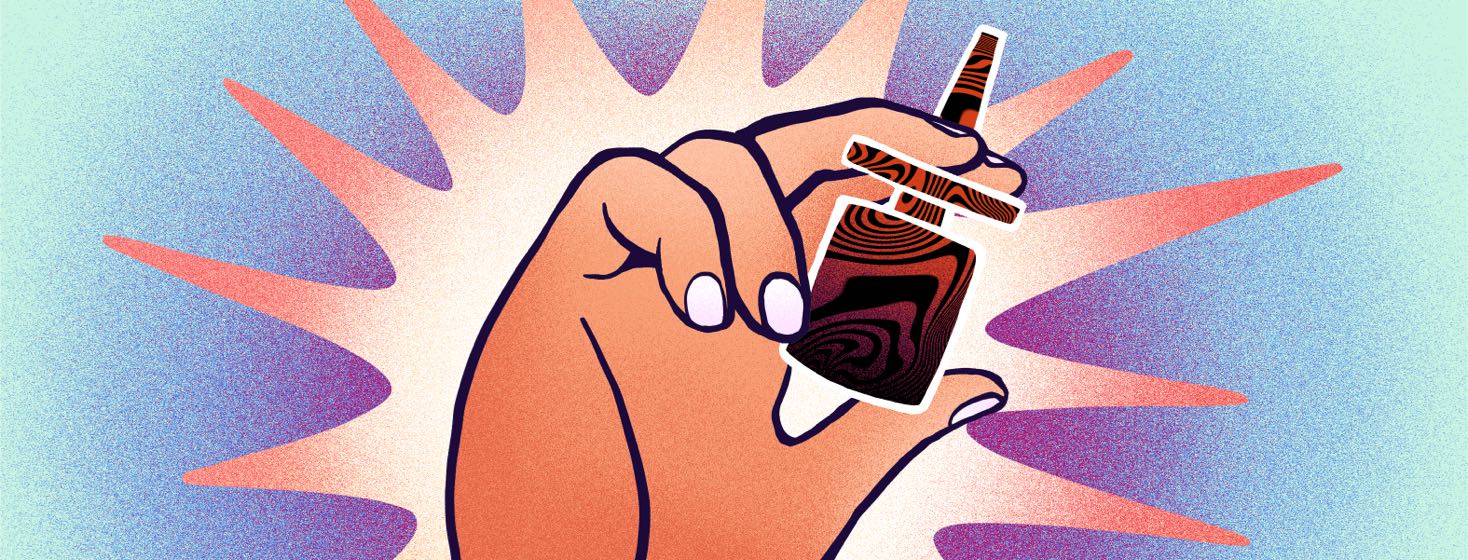People Are Doing What to Get a Tan?
I am the mother of two young adults and an elementary school teacher of 25 years. I’ve survived the era of Aqua Net hair, white Keds with tight-rolled jeans, and riding down the highway in the bed of a pickup truck. Now, as strange as it sounds to say, I have also lived through a pandemic. Fairly often, I find myself saying, “Now, I have seen it all,” or “Surely, I have seen everything.” As it turns out, I have indeed not begun to see it all. I know this because the words nasal tanning spray graced my laptop screen last week. Yes, you read that correctly: nasal tanning spray.
Nasal tanning spray?! I can’t even…
Some time ago, I signed up for Google alerts on topics that interest me, especially those related to skin cancer treatments and prevention. Along with those alerts, I decided to follow the news on stats surrounding tanning and tanning beds. Imagine my surprise when I opened my inbox to see that TikTok has popularized a nasal spray made to give skin that tanned appearance. This product, increasing in popularity by the day, apparently boosts melanin production thereby providing a temporary darkening of the skin. I can’t wrap my head around the logistics of this process and I also have no desire to try it.
Alert of a different sort
These nasal tanning sprays aren’t exactly what they are cracked up to be. When it comes to tanning, is there really anything that’s safe and uncomplicated? As it turns out, nasal tanning sprays are not regulated by the Food and Drug Administration (FDA) and stimulate a few other issues while at the same time darkening the skin. While users experience temporary satisfaction, they may also be negatively impacting the muscle cells of the heart and kidneys. Along with what could become life and death consequences, users may at the very least experience sexual dysfunction, gastrointestinal irregularities, and even decreased appetite. None of that seems worth it for a tan.1
Doctors sound the alarm
While perusing the numerous Google alerts about this strange and dangerous new trend, I found that doctors aren’t on board with changing the color of the skin by way of nasal sprays. Who would've thought?! These sprays contain Melanotan II, a synthetic peptide. Melanotan poses as a hormone that sparks the beginning of melanin in users’ skin cells. Dermatologists like Dr. Christine Ko, Professor of Dermatology and Pathology at Yale’s School of Medicine, are adding their voices to the growing list of critics. Dr. Ko told Insider that there simply are no safe methods of boosting our melanin.2 Nasal sprays made to boost melanin? There’s no way this can go well, now is there?
Change the narrative
Admittedly, things have changed on the skin cancer front since my melanoma diagnosis in 2007. The number of advocates for skin cancer prevention is growing, and sunscreen use is increasing. The more we know, the better we become. The idea of using nasal spray to make the skin darker just seems like a desperate last ditch effort to achieve something none of us need in the end. We need to strive to continue to change the narrative on tans being preferred over naturally pale skin, because they shouldn't be! We have come too far to turn back now. Pale skin is healthy, period.
Nasal spray… the very idea…
Have you heard of nasal spray tanning?

Join the conversation